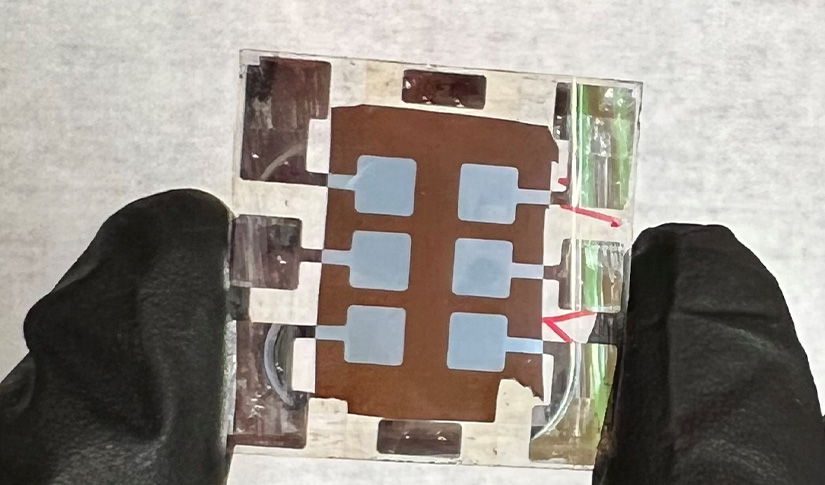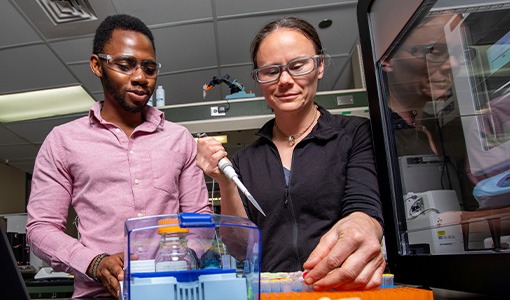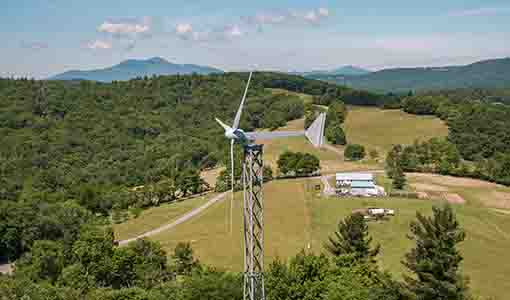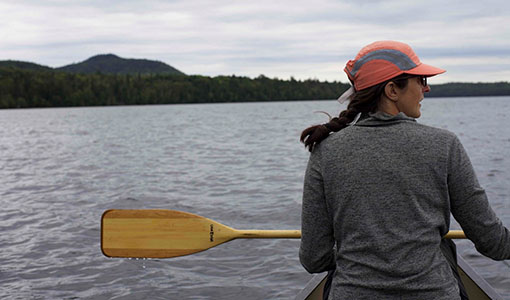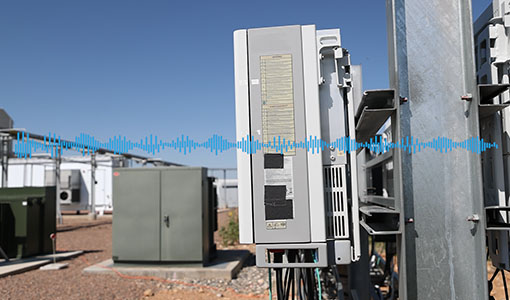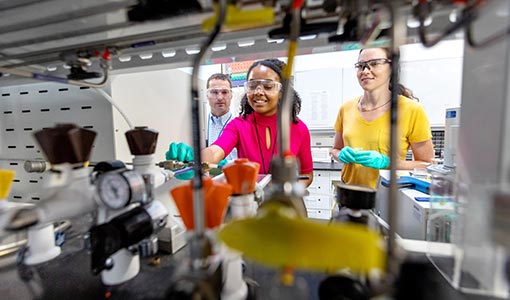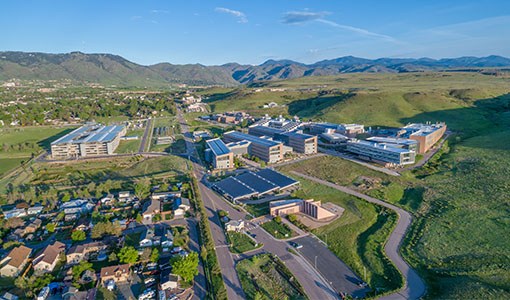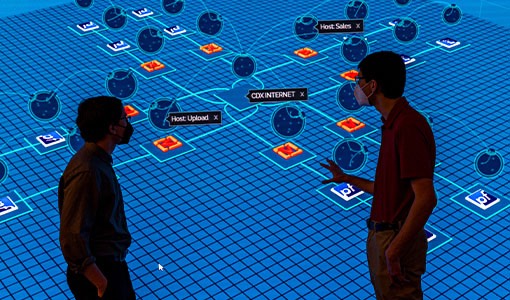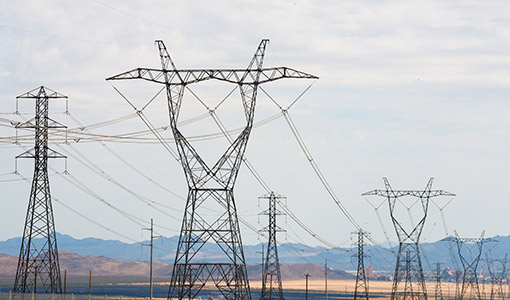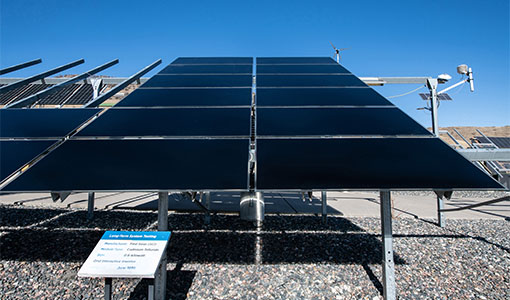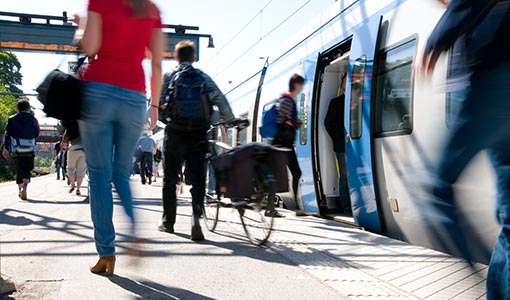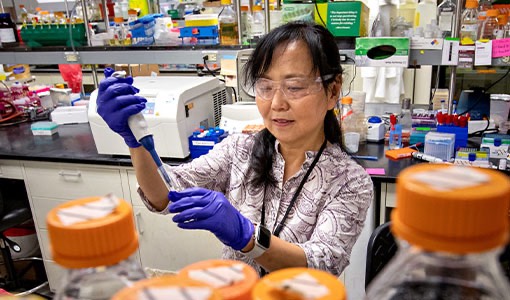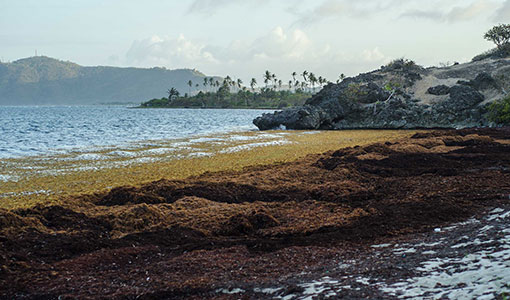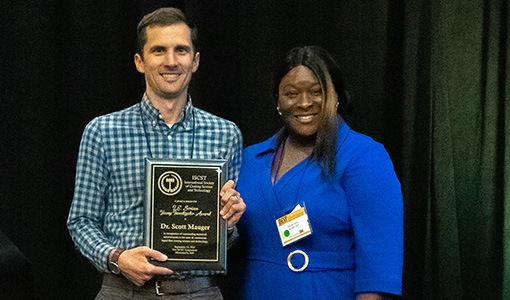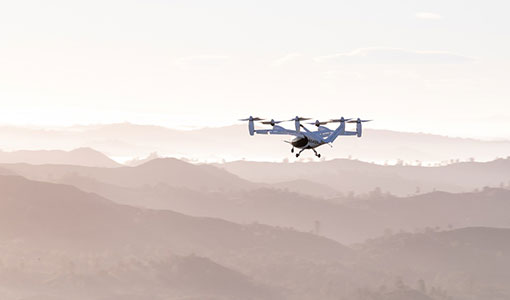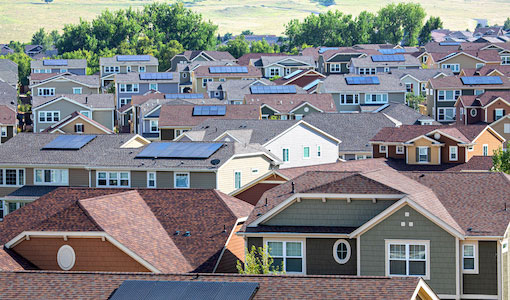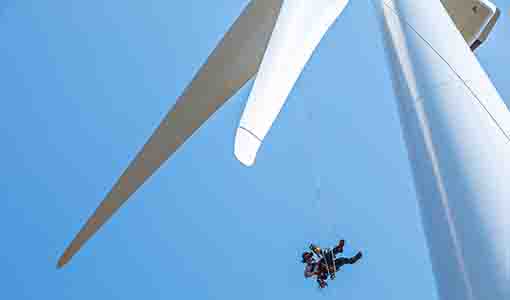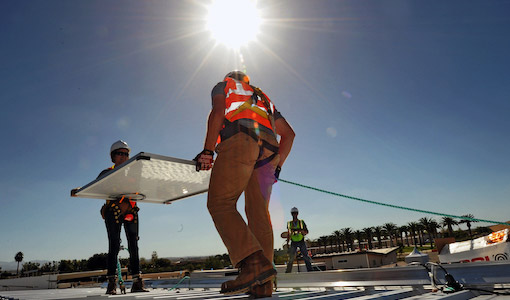December 2022
News Release: New Method Addresses Problem With Perovskite Solar Cells
A new approach to manufacturing perovskite solar cells has addressed previous problems and yielded devices with high efficiency and excellent stability, researchers at NREL report in the new issue of the journal Science.
Scientists Discover Enzymes That Could Make It Cheaper To Recycle Waste Polyester Textiles and Bottles Than Making Them From Petroleum
Using Machine Learning, the NREL-Led Team Discovered Variants of "Plastic-Eating" Enzymes Adapted To Deconstructing all Varieties of PET--Even Durable Crystalline Varieties
NREL Biofuel Scientist Honored by Colorado Governor for Lifetime of Achievements
Over his 40-plus-year career, Michael E. Himmel has unraveled the complexities of using enzymes to deconstruct lignocellulosic biomass for climate-friendly fuels.
NREL Selects Manufacturers of Small- and Medium-Sized Wind Turbine Technology for 2022–2023 Funding
NREL has announced plans to award $2.9 million to 11 manufacturers of small- and medium-scale wind turbine technology through CIP. These awards help manufacturers of wind turbines less than 1 megawatt in capacity, as well as other distributed wind technology.
Beneath the Surface: How Kerry Strout Grantham Negotiates Sustainable Human Growth (and Some Stinky Hikers)
How do we balance both human and environmental needs? This is NREL’s Kerry Stout Grantham’s big question as she helps design the blueprint for coastal, island and remote communities to adopt marine energy.
Singing Inverters Show Electrical Harmony for Renewable Power Systems
The electrical grid is a symphony with each component playing its own tune. NREL researchers have taken such musical principles to heart in designing tools to test grid stability, and they had some fun on the way.
News Release: NREL Seeks Applications for 2023 Executive Energy Leadership Program
Energy Execs provides industry and community leaders an opportunity to learn about the latest advanced energy technologies, which will help guide their organizations in future energy-related decisions and planning.
Meet the 2022–2023 JUMP Into STEM Challenge Winners
The 2022–2023 JUMP into STEM Challenge Winners have been announced, featuring six teams of college students with diverse backgrounds and academic majors exploring solutions towards an equitable clean energy future through building science.
Inflation Reduction Act Invests $150 Million in NREL Projects
NREL will begin work early next year on a series of additions and improvements to two of its campuses made possible by $150 million in funding provided by the Inflation Reduction Act of 2022.
News Release: First Clean Energy Cybersecurity Accelerator Participants Begin Technical Assessment
The Clean Energy Cybersecurity Accelerator's (CECA's) first cohort of solution providers—Blue Ridge Networks, Sierra Nevada Corporation, and Xage—recently began technical assessment of their technologies that offer strong authentication solutions for distributed energy resources.
The 2022 Standard Scenarios Are Now Available
NREL has released the 2022 Standard Scenarios, a suite of forward-looking scenarios of the U.S. electricity sector.
What Is the Recipe for First Commercial Success for Clean Energy Technologies?
Analysts at the Joint Institute for Strategic Energy Analysis and National Renewable Energy Laboratory studied lab-to-market pathways for clean energy technologies.
Transit Data Shed Light on Ridership Trends, Service Impacts
Transit agencies across the country conduct detailed passenger studies and surveys to better understand transit passenger trends. The data from many of these studies are now housed in the transit passenger data section of NREL's Transportation Secure Data Center.
Partnership Receives Funding To Commercialize NREL's 2,3-Butanediol Fermentation Process
NREL and BioPrincipia, a Georgia-based bioprocess technology company, are partnering to scale NREL's fermentation process for producing 2,3-butanediol.
The Caribbean Is Swimming in Seaweed. Scientists Aim To Turn It Into Jet Fuel and Batteries
It was not even close. In 2022, seaweed levels floating in the Caribbean smashed the record set in 2018 by 20%. You could see the consequences drifting up on shorelines from Puerto Rico to the Florida coast.
Two NREL Scientists Recognized for Their Contributions to Coating Science and Technology
Scott Mauger and Michael Ulsh received awards at this year's International Society of Coating Science and Technology (ISCST) Symposium.
Air Force Accelerator Adds NREL for Sustainable Aviation Expertise
NREL is enthusiastically supporting development of electric vertical take-off and landing (eVTOL) technologies, and a new collaboration with the U.S. Air Force is taking that research to new heights.
November 2022
SolarAPP+ Prize Helps Communities Adopt Automated Solar Permit Processing
NREL announced 12 communities as winners of Step 1 of the American-Made Solar Automated Permit Processing Plus (SolarAPP+) Prize—a two-step competition to help communities adopt automated processing of residential solar permits, lowering costs and making solar more accessible for homeowners.
Reasons Behind Wind Energy Workforce Gap Identified
Two NREL studies analyze the causes of the wind energy workforce gap and offer solutions to connect industry employers and potential workers.
NREL Tracks PV and Energy Storage Prices in Volatile Market
NREL has released its annual cost breakdown of installed solar photovoltaic (PV) and battery storage systems.
Last Updated May 28, 2025

